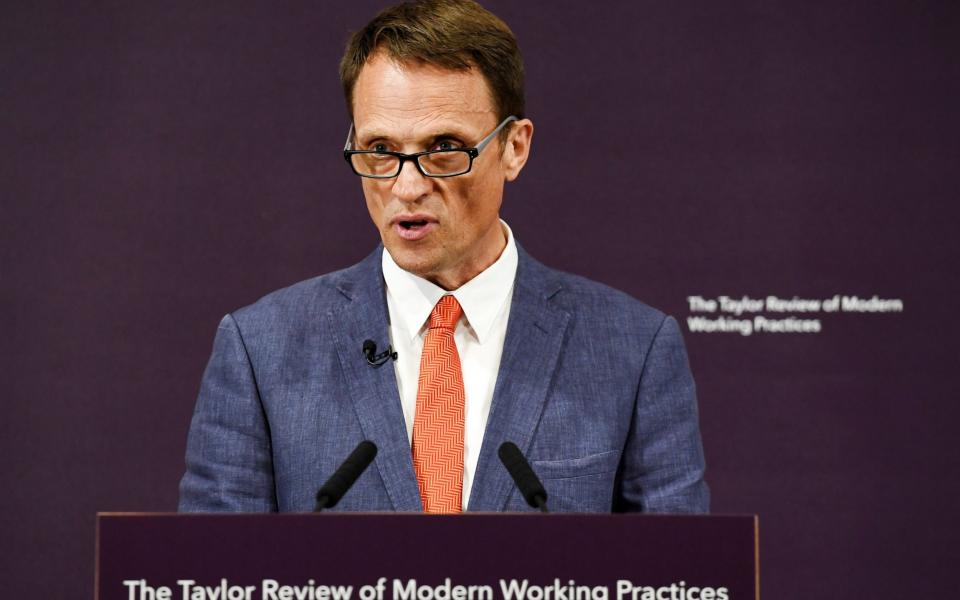Taylor Review pay changes could shrink overtime hours, think tank warns

Efforts to stop bogus self-employment in the gig economy could hit the amount of overtime available for millions of squeezed earners, a major think-tank has warned.
Proposals to enforce a premium rate of pay above the national living wage for so-called non-contracted hours, as outlined in the Taylor Review of Modern Working Practices, could in fact hurt pay for the one in 10 workers who work extra hours, the Resolution Foundation has said.
The idea of making it less financially attractive for firms to use staff on a casual basis, without set hours, by enforcing a premium rate of pay was put forward by the Taylor review in July. It joins around 50 other recommendations currently under consideration by the Government which is expected to issue its response early in the new year.
Matthew Taylor, who oversaw the review, told the Telegraph that he welcomed the Resolution Foundation report. “[Workers] should get a premium, above the minimum wage, for non-guaranteed hours,” Mr Taylor said. However, he said that his focus had been on those workers with the least secure and most poorly paid work.
The number of gig workers is much smaller and more concentrated in London relative to the 2.6m workers who currently seek out one billion extra hours to help ends meet, Rob Holdsworth, from the foundation, said.
Mr Taylor has previously hit out at Uber drivers for demanding improved worker rights at the same time as maintaining self-employment tax status.

 Yahoo Finance
Yahoo Finance 